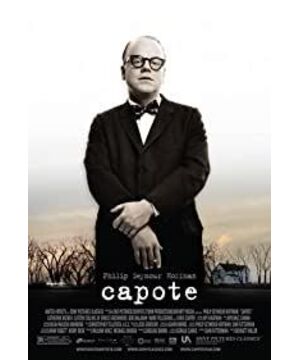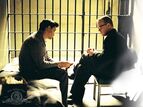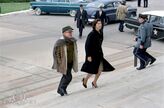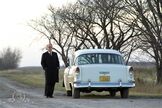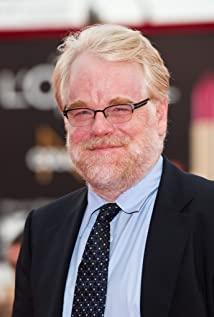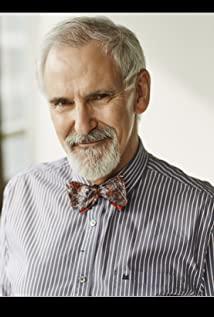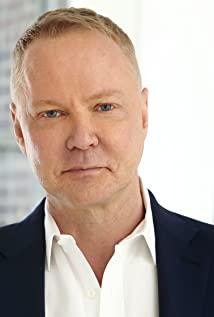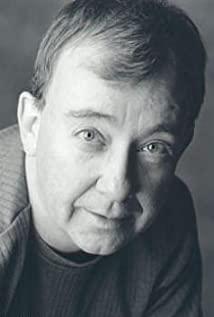Let me talk about the book first: Mr. Kratt, a model citizen, lives in a small town in Kansas with his wife and two youngest children. They successfully run a large farm, are enthusiastic about community affairs, and are helpful. There are two small habitual offenders in the nearby prison: Perry and Dick. Dick, who is tall and has a strong sexual desire, thinks about the shortcut to get rich when he has time. When he heard that the wealthy Klatt in the nearby town often has large amounts of cash (the fact is the opposite, the Klatt’s family never keeps more than 50 yuan in cash) , When I had a beautiful daughter, I began to plan to visit Kratt's house after being released from prison. Perry is a mixed white and Indian, with short legs of a dwarf, arms of a weightlifter, and a handsome face. Perry's life is very difficult. Since childhood, his parents divorced, and his mother moved to California with four children. Due to negligence of care, the children suffered, Perry was the youngest, and the eldest brother and second sister committed suicide when they grew up. Only the third sister took care of her life alone, but she was extremely indifferent to Perry. Perry loves literature and art, has an amazing talent for drawing, and carries a large box of books wherever he goes. During the few years living with his father, Perry was particularly eager to go to school to receive education, but his father always prevented Perry from studying and sent Perry to be a sailor and join the army. Perry was severely beaten by nuns in a Catholic school in his childhood. He was repeatedly gang-raped when he was a sailor and was a soldier. Later, he was crippled in a car accident. All this makes Perry develop an extremely sensitive and extremely self-respecting character. So when Perry met Dick in prison, because he was afraid of being looked down upon, he boasted that he had killed a black man in cold blood. Dick believed it was true and invited Perry to join his wealth plan after he was released from prison. Perry actually didn't like Dick and his robbery plan. Perry liked to think of himself as a literary youth, a non-greedy, compassionate person, a person who was completely different from Dick. He has a better friend Jie in prison. Jie is a wise man, very knowledgeable, understands Perry's distress very well, and understands the weaknesses in his character very well. Jie once said that Perry has a strong anti-social tendency in his character, and he must learn to control it, otherwise it is very dangerous. Jie and Dick were released first. Perry tried to find Jie after he was released, but was disappointed to find that Jie had moved to the East Bank. At this time Perry received an invitation letter from Dick again, so he absently joined Dick's plan.
On the night of the robbery, Perry continued to persuade Dick to retreat. When the angry Dick tied up the Kratt family separately, Perry also secretly took care of the Kratt family, gave Kratt a chair, and put a cushion for his son. Covered his wife with a quilt and successfully prevented Dick from raping Clatt's beautiful daughter. Finally, when Dick finally realized that Kratt had no money in his home, the two were about to retreat. Perry went to say goodbye to Mr. Kratt and said to him, "Don't be afraid, the neighbors will find you in a few hours." But at this time, what Perry saw in Mr. Kratt's eyes was not what he expected. A trace of gratitude, but disgust, fear, contempt, hatred. Perry realized that his words had been misunderstood, and his own efforts to be a good man failed once again-Clatt thought Perry wanted to kill him. Perry was misunderstood countless times in his life, but he suddenly realized that Mr. Clatt was different from those who had been unfair to him before. Clatt’s "misunderstanding" was not discrimination, indifference, cruelty, or cruelty. Stupid, but objectively inevitable. No matter how different Perry feels in his heart that he and Dick are different, the truth is: they are accomplices. Clatt's eyes were like looking into a demon mirror. So Perry snapped, and Dick watched in amazement as Perry killed the Kratts. Later, the police arrested the two men and sentenced them to death in the first instance. The two appealed for a few years (Perry is not a premeditated murder, he should argue temporarily insane, and Dick did not kill at all), and finally they were hanged in 1965.
If "In Cold Blood" is about Perry's story, the movie CAPOTE is about Capote's own story. Capote himself is also an outcast, homosexual. Although he is now a New York writer, he can't get rid of the extremely sensitive and extremely vanity brand brought by his humble background. The film does not reveal much about the content of the book, but just shows how Capote is keen on fame and fortune, how to keenly capture the uniqueness of the Kansas event, how to sympathize with Perry, how to give Perry the friendship he desires, and how to use Perry's I like to get the writing materials, how to spend money to delay access to the materials, gang Perry and Dick ask a lawyer to appeal, and how to call the book "In Cold Blood" in order to gain eyeballs. Like Perry in the book, Capote also experienced a fatal turning point in the movie. When Capote got all the materials (Perry's diary, letters from the third sister, father, and Jie to Perry), and Perry gave all the details on the night of the incident, Capote's book was already settled. At this time, the works of Capote's lovers and friends were published one after another, and the novel "To Kill a Mockingbird" by his friend Harper Lee was also put on the screen and received much praise. Burning with jealousy, Capote realized that at this moment he needed to put a tragic end to Perry's miserable life as soon as possible so that he could publish the book that had been written for six years. So Capote resolutely withdrew, stopped paying Perry and Dick's attorney fees, refused to answer Perry's call, refused Perry's request for prison visits, and looked forward to the judge's rejection of the two's appeals day and night, and the early execution of the sentence. Soon his wish came true. Perry and Dick died, "In Cold Blood" was a huge success and was quickly adapted into a movie. But Capote, like the barrister in Camus's "The Fall," suffered a nervous breakdown because he couldn't face his own soul. He never wrote a book again, and spent the rest of his life drunk. He said: "More tears have been shed for the answered wishes than the unanswered ones."
What I described is not very clear. In short, this book and this movie are very interesting. It is more interesting to watch them together, as if a crack suddenly broke on the surface of the earth, allowing people to see the heart of the earth at a glance. Why did Perry kill? Why did Capote crash? There is a truth in the heart of the earth: people might as well assume that others are good people, but they must never assume that they are good people. Otherwise, when you see the other side of Fengyue Baojian, it is the point of no return. You should position yourself as a bad person who can do well in time as much as possible. A good person can only approach infinitely and can never reach; while a bad person will fight back frantically if he doesn't pay attention. (Note: What we are talking about is the question of inner positioning, which is fundamentally different from the external propaganda strategy of pulling up the sleeves and saying "I am really a hooligan, don't treat me as a person" when you see people.
View more about Capote reviews


